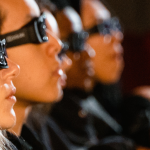In the realm of artificial intelligence, celebrities are venturing into a new frontier: selling their digital images to power advanced AI assistants. Meta has enlisted well-known faces such as Kendall Jenner, Snoop Dogg, Tom Brady, and Naomi Osaka to bring to life 28 AI assistants that go beyond merely answering user queries. The initiative, presented by Mark Zuckerberg at Meta’s annual conference, promises not only to inform but also to entertain users, creating a resemblance so convincing that it feels like interacting directly with the celebrities themselves. However, while some stars enthusiastically embrace this new wave of technology, others express concerns about losing control over their own image.
The proposed compensation seems like an offer hard to refuse, with figures ranging from 1 to 5 million dollars for just six hours of studio work. This futuristic scenario could mark a radical shift in the dynamics between celebrities and the public, but not everyone is ready to hand over their digital alter ego to artificial intelligence. An example is Tom Hanks, who publicly denounced the unauthorized use of his image in an artificially generated advertising video. The actor has voiced concerns not only about artistic implications but also about legal issues, shedding light on the implications of creating and managing “digital clones” without the consent of the involved individuals.
The film industry has not been immune to this digital revolution. Strikes by screenwriters and actors in the United States have led to an agreement imposing restrictions on the use of artificial intelligence in cinema and television. The Screen Actors Guild, the actors’ union, is still on strike to secure protection against the unauthorized use of actors’ images through AI.
This revolutionary phenomenon poses a challenge that extends beyond artistic boundaries and delves into legal territories, laying the groundwork for a new era of awareness and control over one’s digital image. The real challenge will be finding a balance between enthusiasm for the future and the fear of losing oneself in the digital age.




